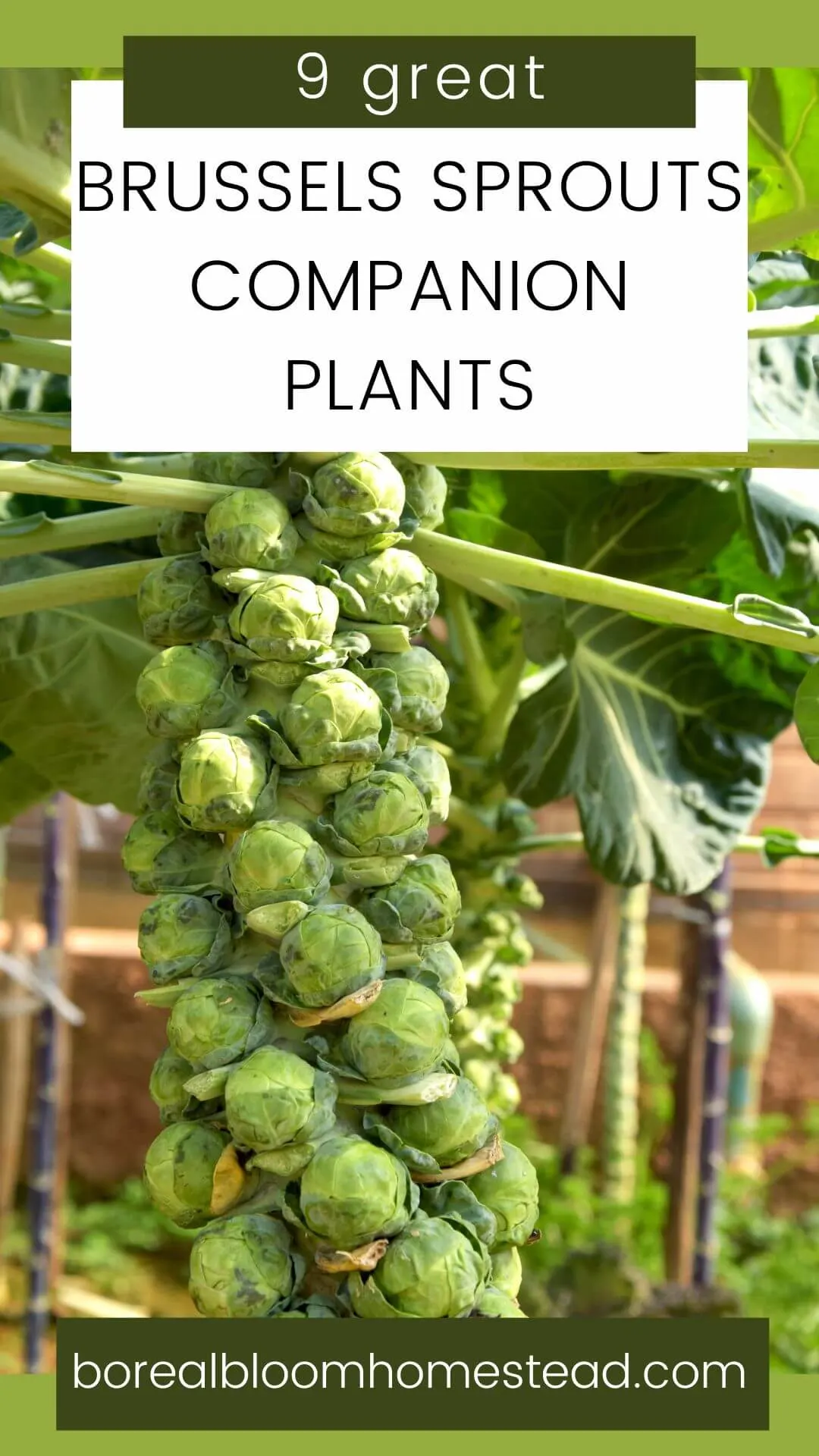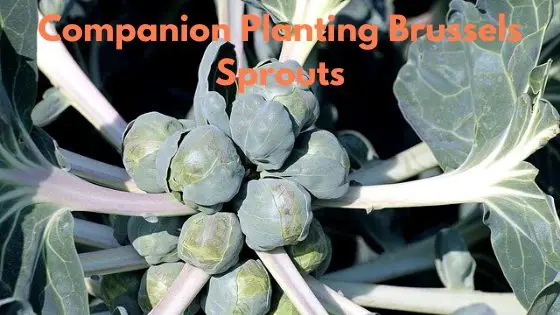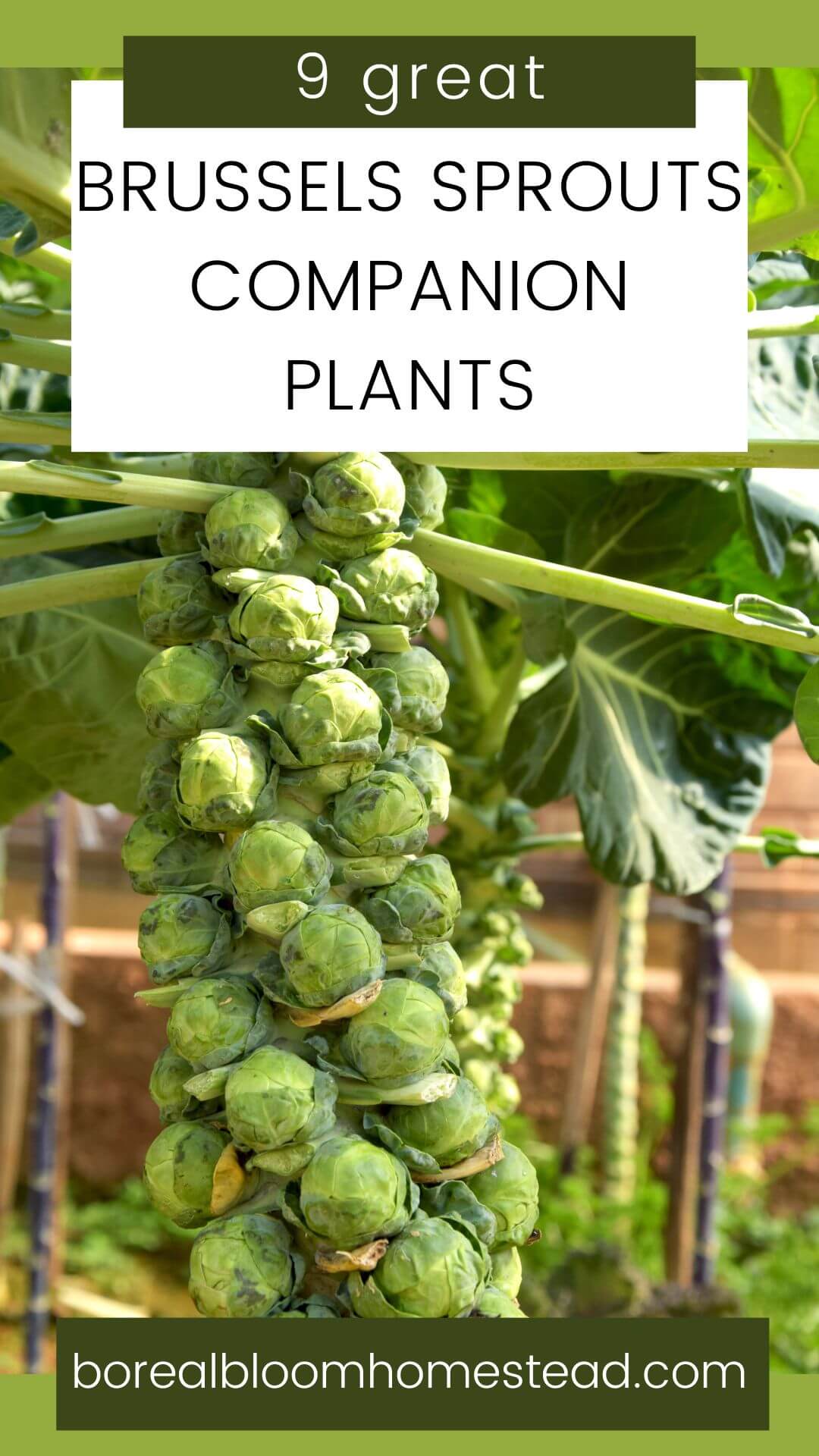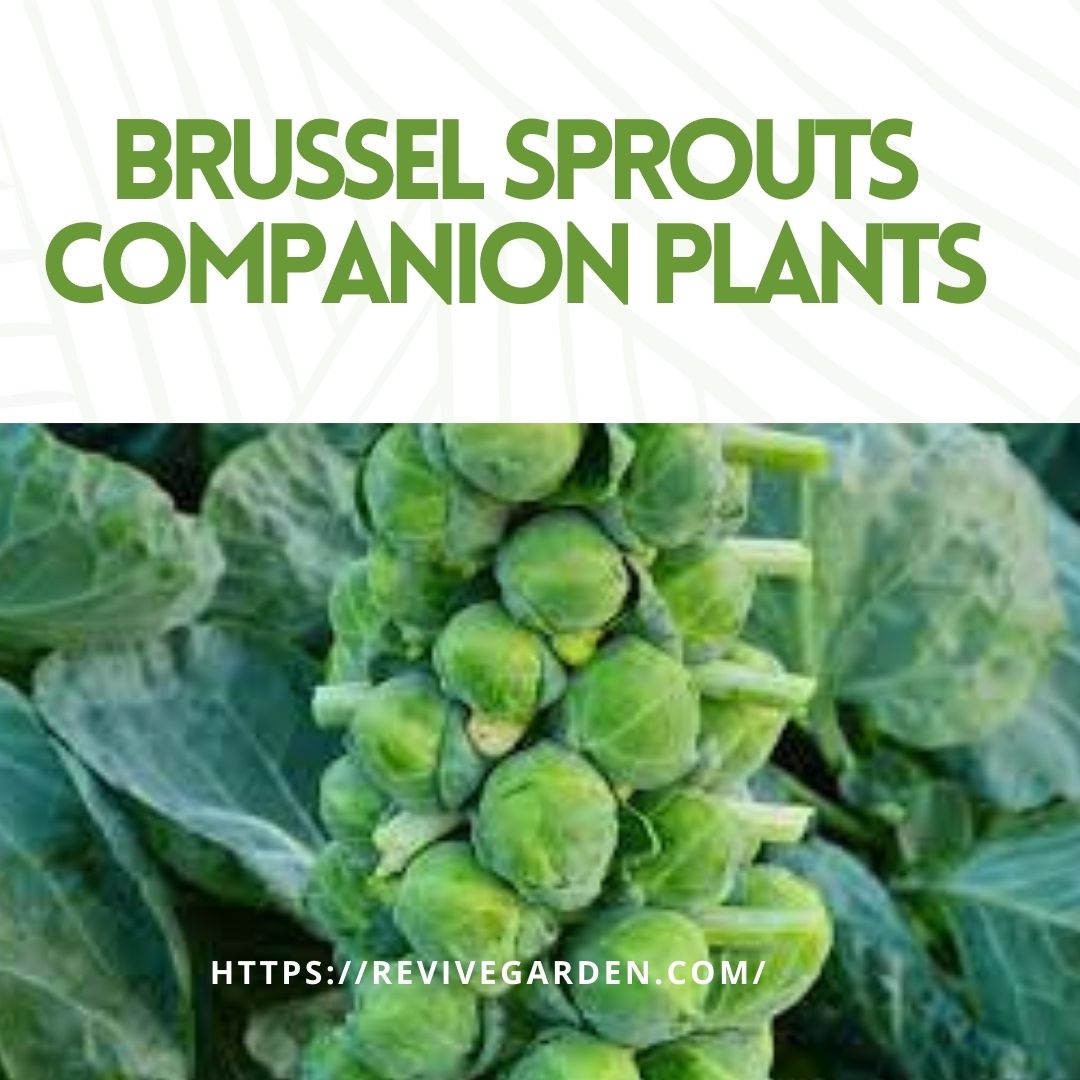The Best Brussels Sprout Companion Plants
Title: The Best Brussels Sprout Companion Plants
Introduction:
Brussels sprouts are a delicious and nutritious vegetable that can be grown in many different climates. They are a member of the cabbage family, and as such, they have some specific companion planting needs. By planting Brussels sprouts with the right companion plants, you can help to improve their growth, flavor, and pest resistance.
In this blog post, we will discuss the best companion plants for Brussels sprouts. We will also talk about some plants that should be avoided. By the end of this post, you will have a good understanding of how to use companion planting to help your Brussels sprouts thrive.
Main Content:
Good Companion Plants for Brussels Sprouts
- Allium plants, such as onions, garlic, and chives, are excellent companion plants for Brussels sprouts. They help to repel pests and diseases, and they also add beneficial nutrients to the soil.
- Beans are another good companion plant for Brussels sprouts. They help to fix nitrogen in the soil, which is essential for the growth of Brussels sprouts.
- Carrots are a good companion plant for Brussels sprouts because they help to deter pests. They also have similar growing requirements, so they can be planted together without competing for resources.
- Celery is a good companion plant for Brussels sprouts because it helps to repel pests. It also helps to improve the flavor of Brussels sprouts.
- Lettuce is a good companion plant for Brussels sprouts because it helps to deter pests. It also helps to shade the soil around the Brussels sprouts, which can help to prevent weeds from growing.
- Marigolds are a good companion plant for Brussels sprouts because they help to repel pests. They also have bright colors that can add interest to your vegetable garden.
- Nasturtiums are a good companion plant for Brussels sprouts because they help to repel pests. They also have edible flowers that can be used in salads or as a garnish.
- Peas are a good companion plant for Brussels sprouts because they help to fix nitrogen in the soil. They also have similar growing requirements, so they can be planted together without competing for resources.
- Spinach is a good companion plant for Brussels sprouts because it helps to deter pests. It also helps to improve the flavor of Brussels sprouts.
Plants to Avoid Planting Near Brussels Sprouts
- Other brassica plants, such as broccoli, cauliflower, and cabbage, should be avoided planting near Brussels sprouts. This is because they are susceptible to the same pests and diseases, and planting them together can increase the risk of infection.
- Strawberries should also be avoided planting near Brussels sprouts. Strawberries can inhibit the growth of Brussels sprouts.
- Tomatoes should also be avoided planting near Brussels sprouts. Tomatoes can affect the growth of Brussels sprouts.
Conclusion
By planting Brussels sprouts with the right companion plants, you can help to improve their growth, flavor, and pest resistance. By avoiding planting Brussels sprouts with certain plants, you can also help to prevent problems. By following these tips, you can enjoy a bountiful harvest of Brussels sprouts from your vegetable garden.
FAQ of brussel sprout companions
- What are good companions for Brussels sprouts?
Brussels sprouts are members of the Brassica family, which includes other vegetables such as broccoli, cauliflower, and kale. These plants can be good companions for Brussels sprouts because they have similar nutritional, water, and light requirements. Some other good companions for Brussels sprouts include:
* Alliums (e.g., onions, garlic, leeks, shallots): These plants have strong scents that can repel pests such as cabbage worms and aphids.
* Beets: These plants add magnesium to the soil, which is beneficial for Brussels sprouts.
* Carrots: These plants help to suppress weeds and improve the drainage of the soil.
* Marigolds: These plants have a strong scent that can repel pests such as white cabbage moths.
* Nasturtiums: These plants attract beneficial insects such as ladybugs and hoverflies, which can help to control pests.
* Peas: These plants help to fix nitrogen in the soil, which is beneficial for Brussels sprouts.
- What plants should not be planted near Brussels sprouts?
Some plants that should not be planted near Brussels sprouts include:
* Other cabbage family members (e.g., broccoli, cauliflower, kale): These plants can compete with Brussels sprouts for nutrients and water.
* Corn: Corn can shade Brussels sprouts and stunt their growth.
* Potatoes: Potatoes can attract the same pests as Brussels sprouts.
* Tomatoes: Tomatoes can attract the same diseases as Brussels sprouts.
- How far apart should Brussels sprouts be planted?
Brussels sprouts should be planted about 2 feet apart. This will give them enough space to grow and mature properly.
- When should Brussels sprouts be planted?
Brussels sprouts can be planted in the spring or fall. If you are planting them in the spring, wait until the soil has warmed up to at least 60 degrees Fahrenheit. If you are planting them in the fall, wait until the weather has cooled down and the risk of frost has passed.
- How much sunlight do Brussels sprouts need?
Brussels sprouts need full sun to grow properly. They should receive at least 6 hours of sunlight per day.
- How much water do Brussels sprouts need?
Brussels sprouts need regular watering, especially during hot, dry weather. Water them deeply once a week, or more often if the weather is hot and dry.
- How long does it take Brussels sprouts to mature?
Brussels sprouts take about 90 days to mature. The sprouts will start to develop at the bottom of the plant and will continue to grow up the stalk. You can harvest the sprouts when they are about 1 inch in diameter.
- How do you harvest Brussels sprouts?
To harvest Brussels sprouts, simply twist them off the stalk. You can harvest them individually or cut off the entire stalk.
Image of brussel sprout companions
- Alliums: Chives, garlic, and onions help to repel pests and diseases from Brussels sprouts.

- Beetroot: Beetroot helps to improve the soil structure and drainage, which can benefit Brussels sprouts.

- Herbs: Basil, mint, and rosemary can help to deter pests from Brussels sprouts.

- Marigolds: Marigolds help to repel pests and attract beneficial insects, both of which can benefit Brussels sprouts.

- Nasturtiums: Nasturtiums help to deter pests and attract beneficial insects, both of which can benefit Brussels sprouts.

- Peas: Peas help to fix nitrogen in the soil, which can benefit Brussels sprouts.

- Pumpkins: Pumpkins help to shade the soil and suppress weeds, both of which can benefit Brussels sprouts.

- Strawberries: Strawberries help to attract beneficial insects, which can help to control pests on Brussels sprouts.

- Spinach: Spinach helps to improve the soil structure and drainage, which can benefit Brussels sprouts.

Post a Comment for "The Best Brussels Sprout Companion Plants"